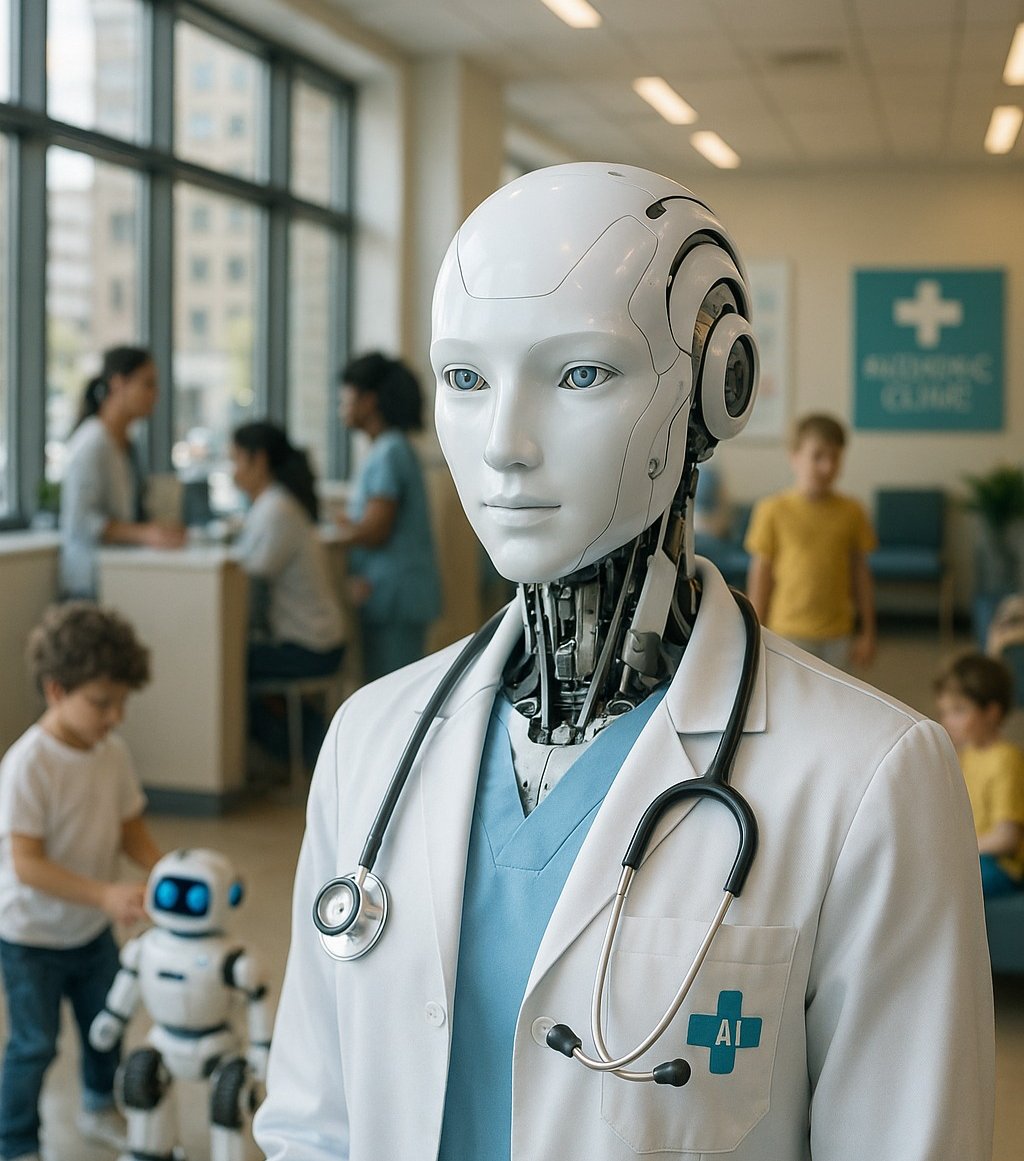Healthcare: How AI and Human Collaboration Are Revolutionizing Patient Outcomes
Blog postAI improves claims accuracy by detecting inconsistencies, supporting clinical decisions, and enhancing efficiency; biosimilar market growth is impacted but changing; specialty pharmacy boosts HIV treatment adherence in youth. description.
AIARTIFICIAL INTELLIGENCETECHNOLOGYHEALTH CARE
Eric Sanders
6/14/20254 min read


Rethinking Healthcare Through the Power of Artificial and Human Intelligence**
The healthcare system is at a breaking point—overwhelmed by inefficiencies, inconsistency in claims, clinical decision bottlenecks, and a rapidly evolving therapeutic landscape. Amid this complex environment, one truth becomes abundantly clear: AI and human collaboration is not just the future of healthcare—it is its salvation.
In the words of Rajeev Ronanki, President and CEO of Lyric:
"Artificial intelligence works best when it’s enhancing human judgment, not replacing it."
This conviction is not a futuristic dream. It’s happening now. AI is actively transforming the landscape of healthcare delivery, boosting claims accuracy, supporting clinicians in making real-time decisions, and even playing a surprising role in patient adherence—especially among hard-to-reach populations.
Let’s explore how these breakthroughs are changing lives, driving efficiencies, and setting the stage for a healthier, more human-centric future.
Connecting Human Insight with Automated Intelligence
For decades, the administrative side of healthcare—claims processing, billing, coding—has been riddled with errors and delays. These inefficiencies not only strain providers and payers but also frustrate patients who rely on timely, accurate care.
Now, AI is stepping in to clean up the mess.
Ronanki sheds light on how his company, Lyric, uses AI models to flag inconsistencies that human eyes may miss.
"Most claims go through a basic level of review, but with AI we can dig deeper," he explains. These technologies evaluate claims in the context of existing data, comparing them against expected patterns and outcomes.
Here’s how AI is impacting healthcare claims management:
Increased accuracy: AI can analyze millions of data points to flag anomalies like coding mismatches or atypical treatment combinations.
Faster adjudication: Claims that used to take days or weeks to review can now be investigated in minutes.
Reduced fraud and abuse: Patterns of overbilling or unnecessary procedures are easier to catch with machine learning techniques.
Lower administrative costs: Automation leads to savings that can be reinvested in patient care instead of operational overhead.
But this isn't just about systems and software. It’s about enhancing the judgment of the people behind the screens—the analysts, the nurses, and the doctors—by giving them tools that remove error and guesswork from the process.
AI as a Clinical Ally, Not a Replacement
There’s a common fear that AI will replace doctors. But Ronanki and others leading the digital healthcare charge think otherwise.
"We’re not trying to replace doctors—we’re trying to empower them," he says. AI is not meant to supplant clinical wisdom but to support it with timely, data-based insights.
Consider a scenario where a physician must decide on a treatment plan for a complex patient with multiple comorbidities and a non-standard progression of disease. In the past, this decision-making process might rely heavily on individual experience or outdated guidelines. But now:
AI can synthesize data from similar patient cases
Provide predictive models for treatment outcomes
Highlight potential drug interactions based on the patient’s prescriptions and EHR info
This isn’t science fiction. It’s decision support in real time, enabling clinicians to make better, faster, and safer choices. These improvements not only enhance outcomes but also deepen the trust patients place in their care teams.
Disruption and Evolution in the Biosimilar and Specialty Markets
While AI continues to redefine workflows and diagnostics, the pharmaceutical sector is experiencing its own shift—especially with the slow but crucial rise of biosimilars.
The original hope for biosimilars was simple: provide lower-cost alternatives to expensive biologics and reduce overall healthcare spending.
However, despite their therapeutic equivalence to original biologics, biosimilars have lagged in adoption. According to Ronanki and other industry experts, that’s not due to clinical ineffectiveness but rather:
Market resistance: Providers and patients often default to established brands.
Opaque rebates and pricing strategies: Brand manufacturers maintain dominance through complex contracts.
Limited data sharing: Payers and providers don't always have access to comparative outcome data.
But AI could help here, too. By aggregating and analyzing outcomes, AI tools can help affirm the safety and effectiveness of biosimilars from real-world evidence—a game-changer for adoption rates.
Boosting Adherence Through Specialty Pharmacy
Beyond analytics and adjudication, healthcare technology is creating more adherence-friendly ecosystems—especially for vulnerable populations, such as youth with HIV.
In a recent initiative, specialty pharmacies delivered not only medication but also structured outreach, including:
- Appointment reminders
- Personalized treatment education
- Telehealth consultations and adherence tracking
The result? Youths participating in such programs saw significantly improved adherence rates—an outcome that is crucial in managing chronic conditions like HIV. It’s another example of how technology, when coupled with empathetic human care, shapes better outcomes.
What Can We Learn From All This?
The intersection of artificial intelligence and human intelligence is no longer hypothetical—it’s transformative. And what sets successful implementations apart isn’t the technology itself, but how it's deployed to support people.
If you're in healthcare—whether as a provider, payer, analyst, or innovator—consider these guiding principles:
- Build for augmentation, not automation. AI should make human workers smarter and more effective.
- Transparency is key. Ensure that AI tools and their outputs are explainable and auditable.
- Think beyond cost-cutting. The ultimate measure of any health innovation is improved patient outcomes.
- Use data to create equity. By identifying underserved populations or care gaps, AI can highlight where human intervention is most needed.
As Ronanki puts it, "When technology and people work in harmony, the possibilities for better healthcare are virtually limitless."
Where Do You See Yourself in This Revolution?
As we're witnessing, the line between technology and human care is blurring in all the best ways. Yet it's not about choosing sides. It’s about asking the right questions:
How can you use technology to amplify your impact, not diminish your role?
What everyday inefficiencies could be solved if AI supported your decisions?
We're not waiting for a revolution—it’s already here. The only question is what role you’ll play in shaping it.
Efficiency
Transform your workflows and reclaim your time.
Contact Us
Need A Custom Solutions? Lets connect!
eric.sanders@thedigiadvantagepro.com
772-228-1085
© 2025. All rights reserved.
